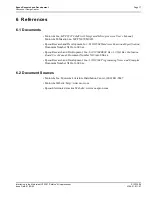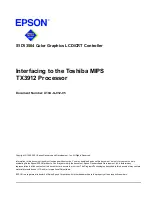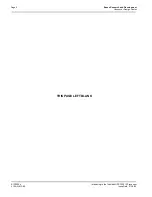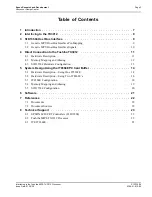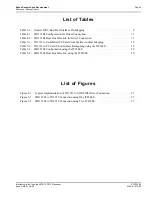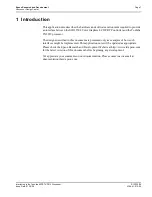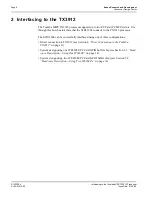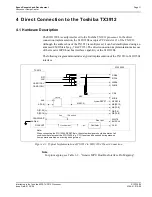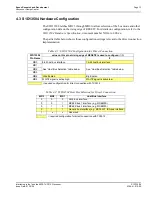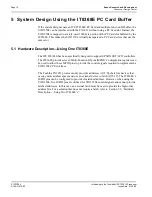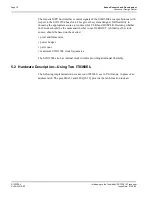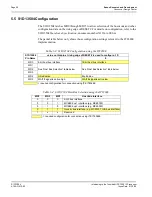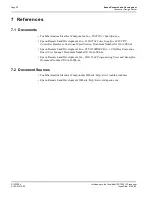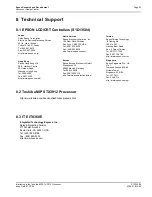
Page 12
Epson Research and Development
Vancouver Design Center
S1D13504
Interfacing to the Toshiba MIPS TX3912 Processor
X19A-G-012-05
Issue Date: 01/10/26
The host interface control signals of the S1D13504 are asynchronous with respect to the
S1D13504 bus clock. This gives the system designer full flexibility in choosing the
appropriate source (or sources) for CLKI and BUSCLK. Deciding whether both clocks
should be the same and whether to use DCLKOUT (divided) as the clock source, should be
based on the desired:
• pixel and frame rates.
• power budget.
• part count.
• maximum S1D13504 clock frequencies.
The S1D13504 also has internal clock dividers providing additional flexibility.
4.2 Memory Mapping and Aliasing
The S1D13504 requires an addressing space of 2M bytes for the display buffer and 64 bytes
for the registers. This is divided into two address ranges by connecting A23 (demultiplexed
from the TX3912) to the M/R# input of the S1D13504. Using A23 makes this implemen-
tation software compatible with the two implementations that use the ITE IT8368E (see
Section 5, “System Design Using the IT8368E PC Card Buffer” on page 14). All other
addresses are ignored.
The S1D13504 address ranges, as seen by the TX3912 on the PC Card slot 1 memory space,
are as follows:
• 6400 0000h: S1D13504 registers aliased 131,072 times at 64 byte intervals over 8M
bytes.
• 6480 0000h: S1D13504 display buffer aliased 4 times at 2M byte intervals over 8M
bytes.
• 6500 0000h: S1D13504 registers and display buffer, aliased another 3 times over 48M
bytes.
Since the TX3912 control signal CARDREG* is ignored, the S1D13504 takes up the entire
PC Card slot 1 configuration space. The address range is software compatible with both ITE
IT8368E implementations.
• 0900 0000h: S1D13504 registers aliased 131,072 times at 64 byte intervals over 8M
bytes.
• 0980 0000h: S1D13504 display buffer aliased 4 times at 2M byte intervals over 8M
bytes.
Note
If aliasing is undesirable, additional decoding circuitry must be added.


